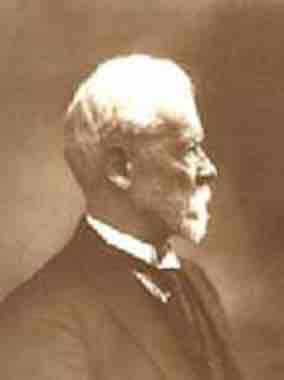Henri Fayol
Fayol was a classical management theorist, widely regarded as the father of modern operational-management theory. His ideas are a fundamental part of modern management concepts.
Comparisons with Taylorism
Fayol is often compared to Frederick Winslow Taylor, who developed scientific management. However, Fayol differed from Taylor in his focus and developed his ideas independently. Taylor was concerned with task time and improving worker efficiency, while Fayol was concerned with management and the human and behavioral factors in management.
Another major difference between Taylor and Fayol's theories is that Taylor viewed management improvements as happening from the bottom up, or starting with the most elemental units of activity and making individual workers more efficient. In contrast, Fayol emphasized a more top-down perspective that was focused on educating management on improving processes first and then moving to workers. Fayol believed that by focusing on managerial practices organizations could minimize misunderstandings and increase efficiency.
His writings guided managers on how to accomplish their managerial duties and on the practices in which they should engage. In his book "General and Industrial Management" Fayol outlined his theory of general management, which he believed could be applied to the administration of myriad industries. As a result of his concern for workers, Fayol was considered one of the early fathers of the human relations movement.

Henri Fayol
Henri Fayol pioneered definitions of control for management science.
Fayol's 14 Principles of Management
Fayol developed 14 principles of management in order to help managers conduct their affairs more effectively. Today, these principles are still used but are often interpreted differently. The fourteen principles are as follows:
1. division of work
2. delegation of authority
3. discipline
4. chain of commands
5. congenial workplace
6. interrelation between individual interests and common organizational goals
7. compensation package
9. scalar chains
10. order
11. equity
12. job guarantee
13. initiatives
14. team spirit
Fayol's Five Elements of Management
Fayol is also famous for his five elements of management, which outline the key responsibilities of good managers:
- Planning: Managers should draft strategies and objectives to determine the stages of the plan and the technology necessary to implement it.
- Organizing: Managers must organize and provide the resources necessary to execute said plan, including raw materials, tools, capital, and human resources.
- Command (delegation): Managers must utilize authority and a thorough understanding of long-term goals to delegate tasks and make decisions for the betterment of the organization.
- Coordination: High-level managers must work to integrate all activities to facilitate organizational success. Communication is key to success in this component.
- Monitoring: Managers must compare the activities of the personnel to the plan of action; this is the evaluation component of management.